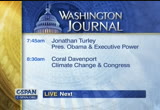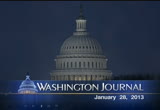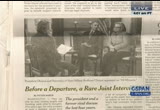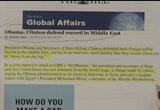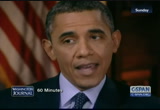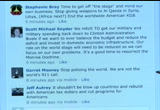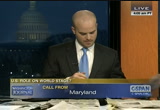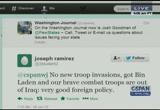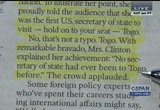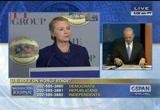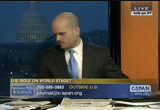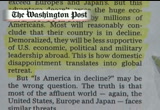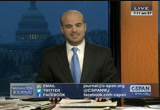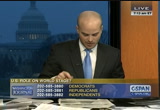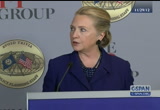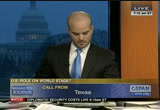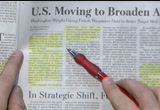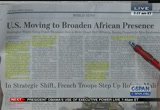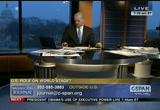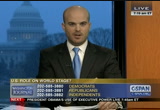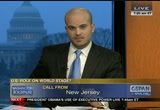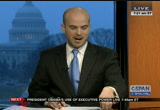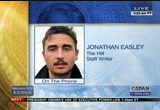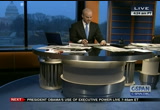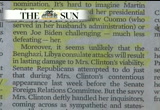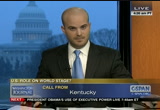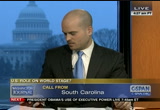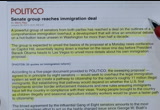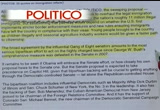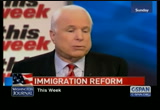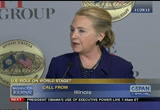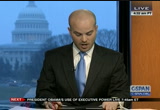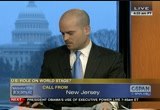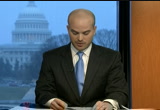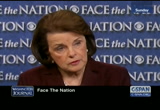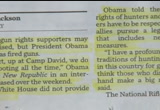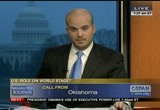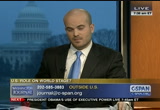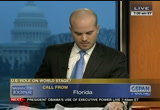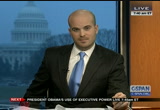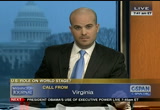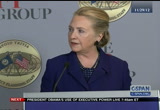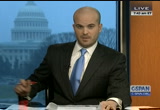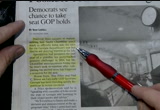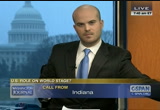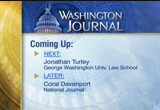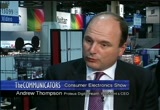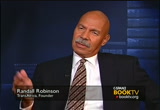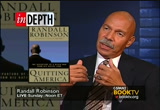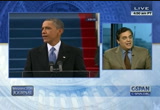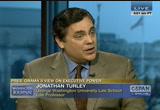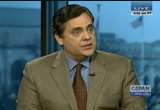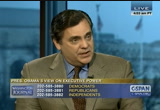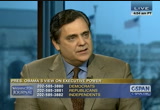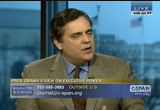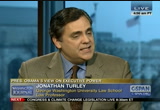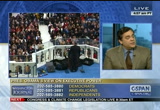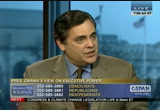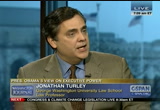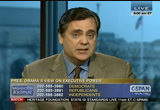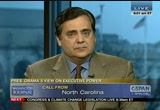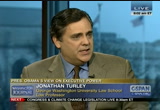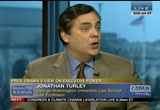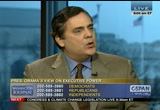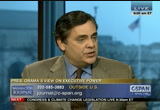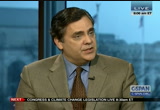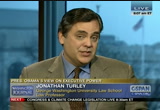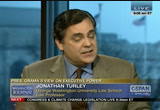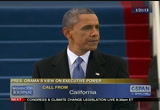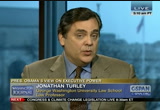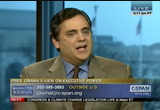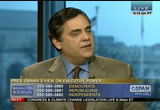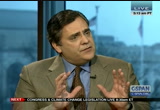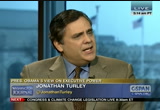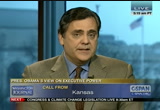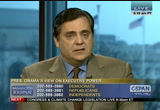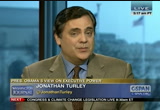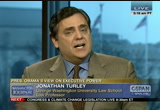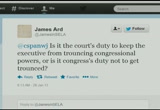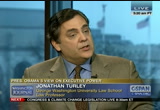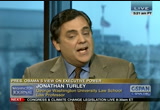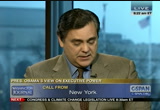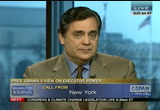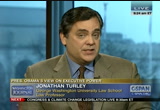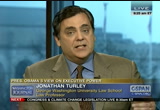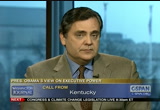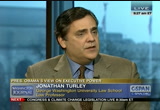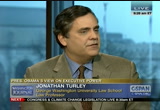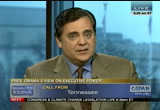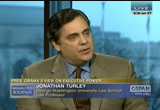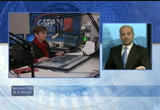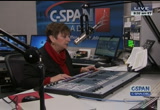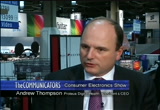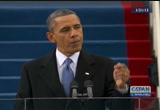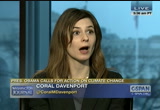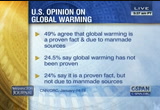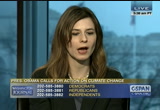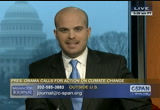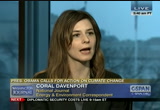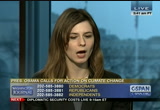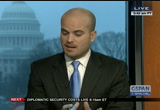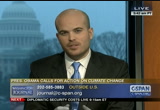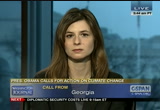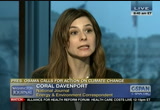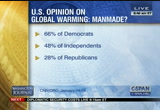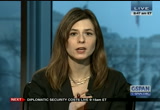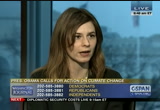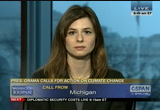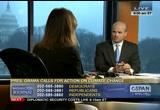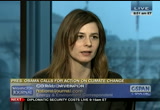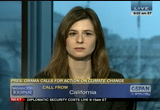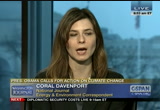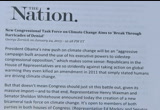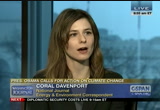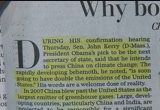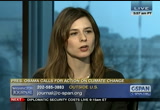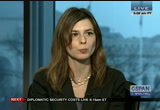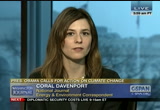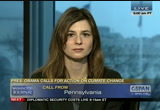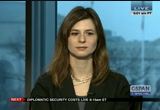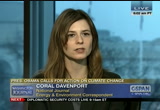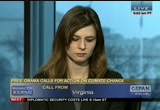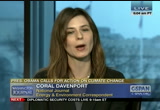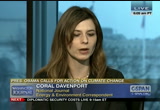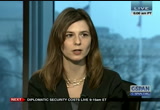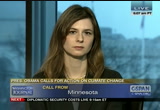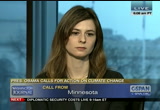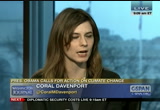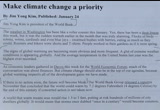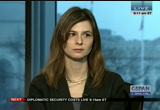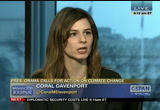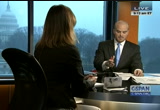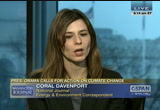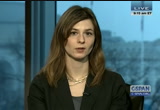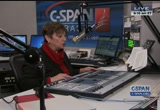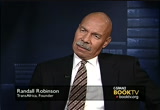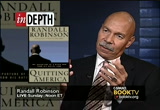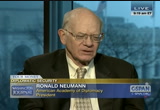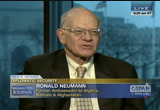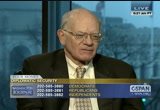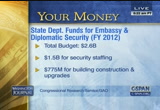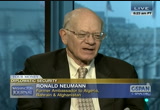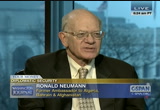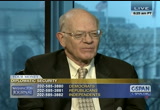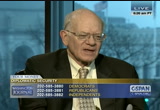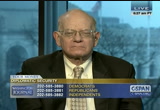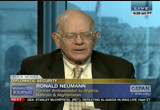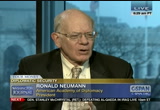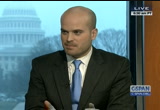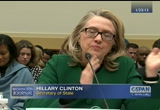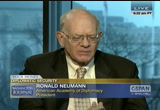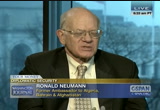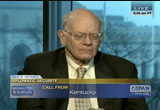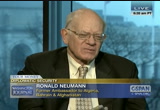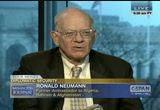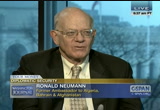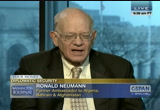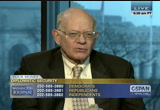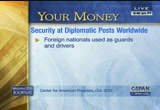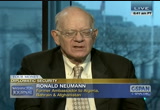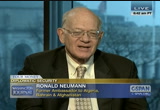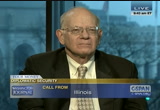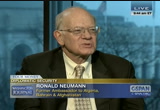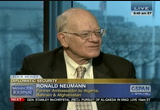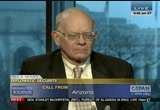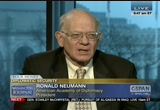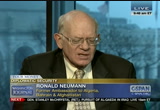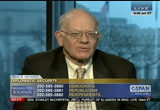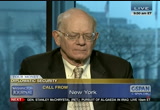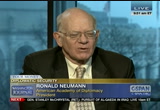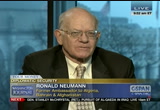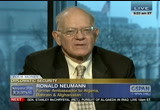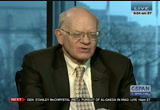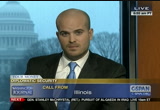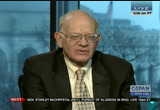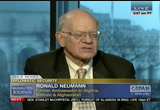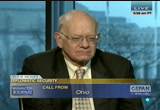tv Washington Journal CSPAN January 28, 2013 7:00am-10:00am EST
7:00 am
prospects for climate change legislation in congress and later, we will discuss the cost of diplomatic security. "washington journal" is next. host: good morning. it's monday, january 28, 2013. the house is out of session this week, but the senate is scheduled to hold off high- profile hearing on wednesday on gun control. today a bipartisan group of senators will release a new proposal on immigration reform as president obama heads to las vegas to talk about the issue. before leaving, the president about itsestions foreign policy record alongside his secretary of state hillary clinton. that's where we begin this morning with you. we want to hear your thoughts on
7:01 am
the role of the u.s. on the world stage. give us a call this morning on the democratic line, the republican line, and the independent. 585-u're outside the u.s., 3883. you can reach us on facebook or twitter or e-mail. good monday morning to you. we want to start with the interview with president obama and secretary of state hillary clinton from last night that appeared on "60 minutes." here's how it played in a couple papers from around the country. here's the new york times headline -- and the culpeper star has --
7:02 am
7:03 am
that interview. here is president obama. [video clip] >> we helped to put together and lay the groundwork for liberating libya. when it comes to egypt, i think, had it not been for the leadership we showed, you might see a different outcome. also understanding that we do know body and a service when we leap before we look, where we take on things without having thought it through all the consequences of it. syria is a classic example of our involvement, we want to make sure that not only does it enhance u.s. security but also is doing right by the people of syria and neighbors like israel that will be profoundly affected by it. if so it is true sometimes we don't just shoot from the hip. host: we are taking your calls
7:04 am
in this first segment this morning, your thoughts on america's role on the world stage. your assessment of the last four years and what you think america's role will be in the next four years of the obama administration. some spots on facebook -- so we will take your calls all morning on this. also, if you commentary pieces on america's role in the world. this from the front page of the
7:05 am
washington times this morning, is the changing of the guard. it is by oliver north. also, in the washington post, today. robert samuelson has a piece called "american century." liz from rockville, maryland, on the democratic line. caller: good morning. i am glad that the wars have ended, but i'm seeing and imperialist role of the u.s. in the world. if there is a humanitarian crisis, it is justifiable to enter the country to stop the government from doing that. but if its is you are just
7:06 am
unseating leaders because they're not friendly to u.s. business interests or you are replacing them with leaders who are firmly to u.s. business interests, that it does become imperialism. bowlines are really blurry and we have to watch our step. military industrial complex in this country is really powerful. i don't want it to spill over to the rest of the world and become the imperialists. host: a few tweets -- and joseph writes -- that is assessing the passed four years. i want to read from the oliver north peace that we mentioned
7:07 am
7:08 am
oliver north is the host of stories."ar mike is next on the republican line in indianapolis. caller: in the last four years, the only factor in the cap of hillary clinton is the miles she has trouble. a relationship to india, china, all of our allies has been very bad. with russia, there's hardly any relationship existing. there has been no significant accomplishment that she can mention. no peace between israel and
7:09 am
palestine. all the arab dictators, but missed a huge opportunity in 2009 when the green revolution was going on in 2009, and they closed their eyes, allowing the iranians to massacre people on the street. so i don't think that she has anything to show off. it has been a terrible four years as far as farm policy. host: what you make of john kerry taking over the position? are you hopeful you will see a different course taken? caller: i don't think so. he enjoys being in the limelight a lot. this is something he has been looking forward to for a long time. i think he will overshadow the president in many ways. i don't think there will be any significant accomplishment by him. host: thanks for scott paul.
7:11 am
john from pennsylvania is next on the independent line. good morning. caller: hello. i agree with fishing sam. i think it will just continue. we have to get out of. so many of we are in somalia, yemen, iraq. we will probably be in egypt and iran. it is ridiculous. you don't see china and germany and other great economies throughout the world trying to continue colonialism or imperialism or whatever you want to call it. zogby to pull back, take care of the u.s. -- we need to pull back. we are shortchanging the u.s. host: this is more from yesterday, secretary clinton giving her assessment. [video clip] >> we live in a dangerous and
7:12 am
incredibly complicated world now with very different forces at work. state-based and non-state. technology and communication. i am older than the president. i don't want to surprise anybody by saying that. >> not by much. >> i remember some of the speeches of eisenhower as a young girl. you have got to be careful. you have to be thoughtful. you cannot rush in especially now where it's more complex than it has been in decades. so, yes, there are wicked problems like syria, absolutely. we are on the side of american values, freedom, the aspirations of all people to have a better life, to have the opportunity we are fortunate to have here. but it's not always easy proceed exactly what must be done in order to get to that outcome. so i certainly am grateful for the president's steady hand and
7:13 am
hard questions and thoughtful analysis as to what we should and should not do. host: that was secretary of state hillary clinton talking about america's role in the world as she is getting ready to leave that post. she mentioned syria in that commentary that she made. a little bit more from the the hill -- that is from the hill newspaper. the new york times as one formation about what's going on right now in syria. the headline --
7:14 am
than 60,000 people died in the two-year conflicts. russia is at loggerheads with the syrian opposition oppose the western and arab reporters. that piece in today's new york times. bruce in texas on the democratic line. caller: good morning. secretary hillary clinton was right. you cannot rush into anything like that. you cannot police the whole world. if the russians or countries like that, you are involving a lot of other countries. i am pretty sure secretary john
7:15 am
carey will do the same thing. he's not point to rush in to police a state like that. we need to take care of our country and protect our borders. that's what we need to do. not saying not to pay attention to any other countries that need help or anything like that. host: how do you make the distinction between the countries that need help and when we should pull back? where would you draw the line? caller: i would not mess with syria right now. i think they can handle it by themselves. there's a lot of people got killed over there, but what other wars have people not gotten killed? as long as it's not like germany where they went and the people prisoner and gassed them and stuff like that, i don't think we should be involved. we need to stay back and let
7:16 am
them do what they need to do over there. host: richard smith on facebook with a different take on this. one other conflict that's going on in the world that has brought in some u.s. involvement is what is going on it in mali. the u.s. moving to broaden the african presence. that's the headline from the wall street journal.
7:17 am
7:18 am
break to see you. -- great to see you. a couple comments. i'm kind of glad to see mrs. clinton leaving, although i don't think there will be a tremendous paradigm shift. i agree with what oliver north said and what you said earlier. i just think it's going to be the same type of political oversight. it is just going to be the same type of person in a different gender leading. i would love to see someone like robert muller or an individual like him in charge of the state department, because i think he would do a tremendous job. insofar as logistical entrenchment throughout the world, i think we still need to be located in many different locations. i think we need to be a little quieter, not so much to be on the military but more on the soft intelligence gathering.
7:19 am
another thing i want to say, i assume our military leaders are doing this, but we need to reassess where our current troops are located. if they're in areas such as to japan and others where we may have 15,000 troops, do they still need to be there? can we deploy them elsewhere? or just reassess the whole situation and go from there. we need a new tactical and strategic approach to our military deployment and intelligence gathering and have strong leadership in the state department. after benghazi, i am disgusted. host: are you hopeful that this change of course can take shape or do you think the obama administration is set in its ways after four years, even though there are some changes in key posts? caller: john, i am so disenchanted right now. it seems like the people you see
7:20 am
all the time who have been around forever that they go into these positions, but are they really qualified? i am republican, as you know, but i don't look at it as a republican issue. i look at it as a competency issue. we need to put people in these positions who know what they are doing, are sophisticated enough to handle it, and are not so politically driven, but actually have a true agenda, which is to protect this country and make sure benghazi does not happen. i'm not on a referendum to coem me up with a plan on how to change security in our state department in those locations, but i still cannot believe benghazi happened. it is beyond me that we could allow -- our leadership was so poor that it could put our ambassador and our people in that position without any
7:21 am
security. that is all i can say. host: stick around for the last segment today. we will be discussing u.s. spending on security at u.s. compounds and on ambassadors at complexes around world. that is at the end of the show today at 9:15, so stick around for that. if i want to go to jonathan, a staff writer for the newspaper. thanks for joining us. guest: my pleasure. host: i want to talk about the other news that came out of that interview between obama and hillary clinton on "60 minutes." clinton was clinton washer possibly -- was asked about her possibly running for president in 2016. guest: she did not make any news, that's for sure. they were both a little dodgy about the prospects of 2016.
7:22 am
i imagine she will lay low for the foreseeable future when it comes to that. but she is right now the democratic front-runner, absolutely. the way it looks right now, she would help a pretty easy path to the nomination if she wanted it. host: did she make any news about her health and recent bout with a few different issues the has been dealing with? guest: she did not. she said she's doing fine. she is a covering. there's a lot of speculation about the glasses she was wearing at the benghazi hearing and if she suffering from double vision from the concussion and a blood clot, but it sounds like she is recovering and doing better. at least that is what she is saying publicly. there's no real news there. twitter was up in arms over
7:23 am
steve kroft not really pressing president.nd the with mrs. clinton on her way out of the state department. host: clinton did mention in the segment that she had considered president obama -- if hillary clinton had won the white house, she mentioned that she had considered president obama to be part of her cabinet if she was president. guest: that's right. it is surprising how highly they both spoke of the tether. in 2008 it was a bitterly contested primary and it -- it seemed that the relationship was coined to take a long time to repair, but they both said -- she said she would have considered obama to be in her cabinet. obviously, obama offered her the
7:24 am
secretary of state position. so they have repaired that relationship. it is kind of surprising to hear how highly they see each other in the wake of that primary. host: jonathan, thanks for talking with us. we talked about clinton was asked about her plans for 2016. here's a piece by a republican and former capitol hill press secretary in the baltimore sun --
7:25 am
7:26 am
independent line. actually, we will go to kentucky on the democratic line with c.e. caller: >> chuck hagel and john kerry stepping into these positions, they can bring their experiences to the table because they have fought insurgents. the only way we will be able to kill the republic is to kill the umpire -- empire. they started this in afghanistan. putting all kinds of money into that pit. just bled them. and we're doing the same thing now. we need to sacrifice the empire to save the republic. , south ken from lancaster
7:27 am
carolina, on our independent line. what is your take on the role of the united states and the world stage? caller: i would like to respond about secretary clinton. you can look at benghazi, the ambassador got killed. egypt is in turmoil. she has not done nothing really. now talking about gs-7 the% rating -- that she has a 70% rating? all these politicians being recycled. leon panetta worked in the clinton administration. recycled politicians, they never want to leave. a 69-year-old lady running for president. i would vote for anybody
7:28 am
else. her job as secretary of state was not good. tweets --ew more poin one other tweet -- left got about 15 minutes on this subject and segment if you want to call this morning on what the role of the united states is on the world stage. a few other news stories out there. here's the headline from "politico" --
7:30 am
a lot more on that issue today. the story is leading the front page of the wall street journal. "immigration debate gears up her." and here's john mccain talking about this proposal on abc. [video clip] >> i will give you some straight talk. look at the last election. we are losing dramatically in the hispanic vote, which we think should be ours for a variety of reasons. and we've got to understand that. second, we cannot go on forever with 11 million people living in this country in the shadows under an illegal status. we cannot forever have children who were born here, or brought here by their parents when there were small children and live in the shadows as well. so i think the time is right. host: that was senator john mccain. president obama and will be in las vegas on tuesday to lay out
7:31 am
his vision on immigration. at c-span.org for all of our coverage of that event and when we finalize coverage details. the enormous object of the role of the united states on a world stage, we will go to kirby from quincy, illinois, on the democratic line. caller: thank you. i have been listening to some of these people calling in and criticizing mrs. clinton, criticizing the this and that. everyone needs to stop and think about it does. look back to the 1960's when kennedy was president and when he started trying to pull people out of vietnam. what was the first thing congress set? they said we have to keep our military involved in some type of conflict, that it's best for the economy. after spending 26 years in the military, i know for a fact,
7:32 am
congress is not helping out. orders to military o take bin laden out. but then congress said we have to bring him back here to try him for war crimes. talk about a waste of money. we have troops all over the globe. however than helping our economy? it's not helping. yet they say we have to be involved in certain type of conflicts to help boost our economy. why don't we pull back from all these different places where there is no action whatsoever? all we have is some kind of base. how is than helping our economy? host: shane simmons on facebook --
7:33 am
that from our facebook page. charlie is up next from new jersey on this subject of the role of the united states on a world stage. good morning. caller: good morning. i think that we are overly involved militarily all over the world. i think there is political pressure from groups like neocons and aipac. we are the second most traded country in the middle east. now we are going into africa, so maybe we could be the most hated country in africa. we spend billions and billions of dollars and 3000 people got killed in 9/11. 40,000 of our people getting
7:34 am
even in iraq. there's too much outside pressure from other countries. our progress is a puppet of the israeli government's. we are controlled by the israeli government. thank you very much. host: one other story that is in the papers today has made news from the sunday shows yesterday. the headline from the washington times --
7:35 am
i want to show you a little from her appearance on cbs yesterday. [video clip] >> this is an uphill climb. it is it differencebill that i introduced. we go from two to physical characteristics in the definition of an assault weapon to one. we ban 158 specific guns by make and model. we grandfather 2200 weapons by make and model that our rifles, shotguns, pistols used for recreation, defense, hunting. we ban clips, drums, strips of more than tablets. prohibit the manufacture of them or their sale or transfer. we are different from the new york state law. we don't require registration of grandfathered weapons. we are also different from the california law in that regard.
7:36 am
in a sense, is a little bit more moderate in that regard. host: senator feinstein's judiciary committee meeting in the senate will hold a hearing on january 30 on wednesday to address gun-control. at that hearing will be wayne lapierre, executive vice president and chief executive officer of the national rifle association. one other story from today's paper on this subject is from "usa today" --
7:37 am
the story is in "usa today" by david jackson today. we have about five or 10 minutes left of this segment on the role of the united states on a world stage. i want to go to mike from oklahoma city, oklahoma, on the democratic line. thanks for getting up with us. caller: good morning. i was sitting here listening to some of these people on gun control. [indiscernible] he' these people calling in with all these wonderful ideas. ask them if they were ever in the military. i spent eight and a half years.
7:38 am
i got out because of my hip. all these idiots out thesewho keep calling, yes, we do have to stop these wars. first we have to fight them. when i first went in the service umc a tattoo on the guise of the american flag and it said together we stand. the last time i saw that was 1968. we have to go together. we cannot have this bunch over here and this bunch over there. i will say best, i think if clinton wants to run for president, i think she will win hands down. all this ground is done is to cut her down. this has to stop. you go to your church and i go
7:39 am
to mine. let's walk along together? then they say you are a daraa liberal or a conservative. what difference does it make? like she said, the waters under the bridge, let's do something better. but after do it together. host: another tweet -- i want to go through and mario from miami, florida, on the republican line. good morning. caller: good morning. listen. my question is do these liberals running the country now, what is the difference between 17 bullets or templn bullets in a magazine? they're telling me it's ok to kill 10 people and not 11?
7:40 am
host: go to foreign policy for may. talk about your feelings on the u.s. on the world stage? or how you might assess the last four years of the obama administration? caller: i would like to have the secretary of state hillary clinton sat in front of a judge to respond to what happened in benghazi, because she said she was responsible for what happened there. host: were you not satisfied with her testimony before congress last week? caller: i was not, sir. she should be tried for what happened in benghazi. host: why were you not satisfied? caller: because it did not cover anything. [indiscernible] host: thanks for calling this morning.
7:41 am
if you want to check out secretary clinton's testimony, you can see that online at c- span.org. one more call this morning from springfield, virginia, on the democratic line. vita, your assessment. caller: banks taking my call. -- thanks. i really resent those who call in to talk about hillary clinton at is too old. somebody said that is a 69-year- old lady thinking about the presidency. or just a caller who how who ho , kishi was caller who talked about how cocky she was. that is: for they don't respect
7:42 am
women. a record number of women are in congress. just recently, the ban was lifted for women to serve in combat. i think we need to release all this talk about -- and how we characterize women and face the new reality. host: give me your assessment of hillary clinton's work over the past four years as secretary of state. she has traveled more than any other secretary of state. how would you assess your performance on the national stage? caller: beyond all the mileage and how many countries she went to or what ever, we have to recognize that she is serving at a time in our history that is probably one of the most difficult. she has been able to work with pther countries to come uii with ways we could be effective
7:43 am
multilaterally and she's done a nice job. there's no cockiness in that. as far as egypt, i heard people saying we were not affected. people have elections and they elect the people they want. our job is to work with whomever is elected fairly. i do agree with the administration that we need to think carefully and very insightfully before we jump foreign conflicts. what is going on in syria and in other places, i think that has been handled very well by the administration. host: i want to run through a couple quick stories on the upcoming electoral battle in the united states senate due to a
7:44 am
7:45 am
i want to wrap up this segment, will the u.s. on the world stage with tim from rockville on our independent line. caller: good morning. we keep forgetting about america's longest war and that is the war on drugs and how many people it has killed because of influence onceful the rest of the world. i don't understand why that is forgotten and how many billions and trillions of dollars that we spend to support mexico's federal police and their army as well as all the other countries that support by our money.
7:46 am
we keep forgetting about that war. that is a 40 + year war. host: do you see it ending anytime soon in the future? caller: if the united states starts treating it as medical science treats it, as a medical problem and not a problem -- we just keep killing people because of our influence. i think we should get out of it and treated as a medical problem and not a problem to kill people with. host: thanks for the call. that will do it for this first segment. up next, we will take a closer look at president obama's use of his executive power in his first term and what might be coming up in his second. if we are joined by george washington law professor jonathan turley. later, president obama vows action on climate change. what can realistically be done
7:47 am
in this political environment? we will ask national journal reporter coral davenport. we will be right back. >> ♪ ♪ [video clip] >> we have created a platform that we call a digital feedback system. a main component of the platform are an integral sensors that turns on when it's all it-- when you swallow it. it collects information about the medicines that you take and your heart rate and body rate and temperature. a wellness matrix. then it communicates via radio with a cell phone that you carry. they process the data and send it back to you as an application that can help you manage your
7:48 am
health. >> we are at a point where we have had all these incremental and amazing changes over the last five years. now we are poised to really make some great leaps in complex diseases. our understanding of cancer in the last five years has forced the last 25. the next 10 years will really take us through some amazing advances. >> the latest advances in health technology from the international consumer electronics show. tonight at 8:00 eastern on c- span2. >> want can count the times that americans say we are the best country in a world. -- cannot count the times. it is a marvelously stupid thing to say. of all the countries in the world. everybody thinks their country is pretty good. why do we have to believe that we are the best?
7:49 am
what does that mean? why do we have to assert it all the time? and what does it mean to other people who consume it? american products go-around the world, information products. so now we are observed by people in every corner of the world. we teach them not to like us. gratuitously. >> author, activist, and transafrica founder randall robinson, take your calls, e- mails, facebook comments and tweets. sunday on c-span2 and noon eastern. washington journal continues. host: george washington
7:50 am
university law professor jonathan turley joining us to discuss his views on president obama's use of his executive powers as he begins his second term in the white house. why don't you start with your take on obama's inaugural address last week and what you described in your "usa today" column as a difference between civil rights and civil liberties under this administration? guest: the inauguration speech was picking up a very common and almost mantra in the obama administration of achieving equality, which is a noble and important goal. i think the most significant thing about the inauguration speech, which are particularly thought was wonderful, was his reference to gay-rights and to the gay movement. it established his commitment to equality. i want to note that he has not been particularly aggressive in supporting gay rights in his first administration. his administration in court argued the same arguments as the
7:51 am
bush administration. he still refuses to make clear his position on key legal aspects of gay-rights. and so, the first term obama was not nearly as passionate as that speech would suggest. but what was missing once again was a discussion of civil liberties. i think it does reflect this grewat this-- -- great schism in the democratic and liberal community. i wrote a column two years ago about how barack obama has destroyed the civil liberties movement by dividing it. he does not have a good record on civil liberties. he adopted an expanded on many of george bush's executive powers. i think that democrats and liberals tried desperately to ignore that aspect of his record. but the fact is that barack obama is the president richard nixon wanted to be. host: imperial?
7:52 am
guest: yes. george bush tried and could not. richard nixon tried and could not. barack obama did it. unprecedented unchecked power. many democrats cannot get themselves to oppose president obama on presidential power. the result is very dangerous. we have the president who is the most powerful president in history. he has rights and powers and privileges that we have long denied to prior presidents. those will remain when obama leaves. i think the democrats will hater e their silence during this time. host: give us some specifics on the instances you are referring to me talk about his power? guest: there are a number of them. he has argued for unilateral authority in the way that other presidents suggested but never got away with. this includes things like war powers. this week the presidents and is
7:53 am
debating whether to intervene in the syrian civil war. the last term, intervened in the libyan war and said that he did not happen to get authority from congress, that he alone would define what is war. if he decided it would not be called war, he would not get authorization. democrats rolled over on that and so did republicans. we cannot get review in court. probably the most notable, besides the expansion of surveillance laws, reduction of privacy rights, is the "kill list." president obama came out in his first term and said that he has the authority to appeal any u.s. citizen without a trial or charged if he believes they are a threat to national security. that he has that unilateral authority parody's sent out his attorney general who presented a policy, went to north western law school with a huge audience of of judges and lawyers and he
7:54 am
announced that the president believed he could kill any one of them at any time if he believed they are -- it is in national security interests and those interests are so compelling. the amazing thing is not the speech but what followed was applause. you had a room filled with lawyers and judges and they actually applauded a president who said i could kill anyone of you without the charge, without a conviction. host: i want to take you to a comment by sam walker in a recent piece last week in the huffington post. he is a historian, civil libertarian, criminology professor. he writes --
7:55 am
so he seems to be riding that there are some reasons for him doing this . -- writing. guest: there are always reasons. it borders on a form of constitutional defamation. people suggest the constitution is too limiting. the greatest response to that is we are still here. we're not the first generation that has hadperh -- threats. the country has the ability to protect itself. every president asserting unprecedented or abuse of
7:56 am
powers says i'm doing this for you. it takes an dedicated and balance citizenry to say don't put this on us, you took an oath to uphold the constitution, that limits your power. there are two threats to freedom, one from outside and one from inside. the framers of the constitution said the greatest threat we face is the concentration of power in the hands of one or a few. it's dangerous. think there's almost a cult of personality. liberals have destroyed resisted this type of concentration, fought for civil liberties, but they have become decoupled from that foundation. i think they will come to regret that. this will not be our last president, but these powers are likely to remain. it's very easy to expand presidential powers and very hard to get them back into the bottle. host: this from john whitehead,
7:57 am
also with "the huffington post" -- guest: it's hard to see that in his first administration. his record is shameful when it comes to presidential powers. his unilateralism. he does not show a respect for constitutional law. when he was first inaugurated, i him.d for a periodi wrot i wrote a column saying i supported him. but i want people in my column saying i think you are making a mistake of who this person is. he's not someone that is shown in his life a great commitment to principle. if he's a great commitment to programs. that is to his credit that he believes strongly in programs, believes in helping people. he is not been backed wedded--
7:58 am
he has not been that wedded to it. host: what do you think when you see this headline -- guest: this is a great irony. democrats all over george bush, rightfully so, about his expansion of the national security system. but he was really an amateur in comparison to what obama has done. obama's expansion of the national security state in the united states is really breathtaking. he has given everything that has been asked from the security establishment.
7:59 am
that has resulted in the erosion of the separation of intelligence from the military. it used to be weeks of the cia would only do intelligence work without a military arm, but the military would focus on military aspects and not intelligence. that has blurred. the cia is now demanding their own fleets of drones. they have a quasi military units. militaries' expanding its intelligence operations. we are seeing this type of lending across-the-board where intelligence and security services are getting windfalls from obama. he made the decision early on. the best example was when he first came into office and went to the cia and announced that no one at the cia be prosecuted for to order. many of us fell off are tears because he had admitted waterboarding is torture pansy went to the cia and said don't worry, no one will be prosecuted for torture. we all looked at that in disbelief. we have treaties that go back to important events like
8:00 am
nuremberg that require us to investigate and prosecute things like torture. but it was an early indication from obama and he was going to carve out a national security and leave it in the hands of these hawks, people like john brenan and others. host: host: he has been the lead counsel in several notable cases including one involving area 51 workers, nuclear couriers at oak ridge, and four former u.s. attorney general during the former a page and procedures. let's go to north carolina, on the republican line. caller: good morning mr., turley. ♪ cait is very refreshing to hear what you are saying. doesn't seem like too many people, especially the
8:01 am
mainstream media, is giving this topic of an imperial presidency. our i could listen to you and talk to you all morning but number one, the recent washington, d.c. appeals court ruling on the obama "recess appointments." if you could speak to that -- one other question -- regarding tying gave rise to the civil-rights movement, i'm sure you know who charles kraut hamer is. as a conservative, i want everyone to have civil rights and be treated equally. he feels there is a possibility, we as a nation and the supreme court and the gay-rights movement, could make this a
8:02 am
mistake that we made four years ago with roe v wade, that we did not allow the democratic process, the legislative process, the social process of debate and acceptance and so on to run its course. we trust that with a ruling by the supreme court and we have been in the streets for over four years and probably will be for another 40 because we did not allow the legislative process to continue. if you did speak to those, thank you very much. guest: on the recess appointments -- host: what was the decision the caller was referring to? guest: the president's appointments during a recess period or unconstitutional. he waited for congress to be out for a couple of days and pushed through four confrontation -- controversial appointments to the new labor relations board
8:03 am
and of -- and it includes the cordray appointment. the recess appointment clause was created for a different purpose. when i testified in congress, i said i believe that all these recess appointments or unconstitutional. the court of appeals actually agrees with that position. it unanimously ruled that the president violated the constitution with those appointments. this is another example of unilateralism by the president. the recess appointment clause is designed because congress was off -- was often out of session for as long as nine months for this was a bit -- a time when people travel to washington, d.c. and more only in session for a short period of time but the government had to go on. during those lawyer -- long recesses, the president should be able to fill offices.
8:04 am
there were relatively few federal offices so if you had a big vacancy, that was a big hole. the president could afford -- could appoint but someone and then they could vote on every will have a problem anymore but the president have been using the recess appointments clause to try to circumvent the senate which has never been its purpose. i believe what the president did was wrong. cordray, who i respect, was blocked, that was part of the system very the senate was an easy about this new agency. the president mobilize circumvented that are host: this is the consumer protection bureau? guest: yes. the problem democrats have is that we cannot be a hypocrite on presidential power . i presidentialcordray and i think republicans were wrong to block them. principle sometimes makes you do things you do not want to do and
8:05 am
too often, people blame the republicans. host: from twitter -- guest: his option is to work with the senate. people make this sound like this is the first time that ever happened. it was the democrats that developed of this technique. pro-forma sessions, you cannot have business. in this pro-forma session that the president said congress was not there, they actually did do substantial business. they passed a very important piece of legislation. these pro-forma sessions are with the congress defend itself from presidents exercising their authority. we don't want this breed is not good for the system. we have a divided country. that is reflected in congress. that means they have to work
8:06 am
together. you cannot approve people circumventing the system just because you don't like the apartment. if you allow that to happen, the next president might not be of your choice and you will be a hypocrite to object and then. host: lots of comments from that from the sunday shows yesterday. senator bob corker was on yesterday saying that all the decisions that has been made from -- for those appointments were made and now can be called into question. guest: i think they could. when i testified in congress, is it your making a terrible mistake because this is flagrantly unconstitutional. i was speaking to the democrats that they have to prevail on the president not to do this and they did not. the democrats supported the president even though they took the opposite position during the bush administration. host: lincoln, neb., on the democrats' line -- caller: good morning, i would
8:07 am
like to have some information on how you feel about the president try to circumvent the american people with gun control legislation. thank you. guest: what the president is doing is using executive powers to take steps without legislation. he suggested he would do that to a greater extent but so far, he has really done marginal things. there is a suggestion he will do things more substantial. this raises the tough question. on immigration, the president came out and instructed the federal agencies not to enforce certain immigration laws. many of us were surprised by that because here is the president that ran on opposition to the george bush signing statement legislation saying he was opposed to presidents changing the meaning of legislation through congress and they had to respect the legislation now obama has gone
8:08 am
one step further. he says he will instruct for that legislation simply to not be enforced. this raises a significant question for the american people of whether they are at all concerned that a president here is effectively negating federal law. on the gun issues, the fear is that he may do the same thing, he may use executive power as an alternative to legislation i think that is a huge mistake. we are a divided country when it comes to gun control. the supreme court ruled in the heller that this is an individual right. for the president to come in to do this, outside of legislation, would be a serious problem. even in the legislative process, it will be tough for things like the feinstein bill. she is talking about bans on types of semi-automatic weapons. she will collide directly with heller. the supreme court has said that
8:09 am
the second amendment allows for some reasonable limitations. i think that gives a certain amount of room for legislation. when you talk about prohibition, then it becomes a closer question under heller. host: lancaster, calif., independent line -- caller: i would like to talk about, you know, the president and the dream act, that he circumvented congress and signed the nafta agreement with truck drivers. congress and the senate would have to do something. he went and had an signed an executive order which is for foreign nationals which was a job back for foreign nationals which is the only job act he has ever done. that was criminal. these were not united states citizens which is a week, the
8:10 am
people. we need to get our house cleaned up, stop arming foreigners all over the world and keep our gun rights for the american citizens. guest: in terms of immigration, as i mentioned earlier, there is that lasting controversy about whether president obama could do, as he did, and say that certain federal laws do not have to be enforced. that raises separation of powers questions. as to the constitutionality of what the president is moving towards in the immigration, this week, it appears he has bipartisan support. it appears congress is going to pass significant immigration reform and that reform looks like it will fall much of what president obama once. .
8:11 am
wants. if that goes through, that is perfectly constitutional. you get the government you vote for, that you deserve and this is the government you have. if you oppose the republicans in the senate for reaching this agreement, your recourse is to replace those members. host: going back to your comments about the president paused use of drones and how he fights the war on terror -- guest: every president has said he is facing problems that his predecessors did not have to face and that is why he is asking for more power. three people have to be highly skeptical of that. drones an important technology. they are not so vastly different
8:12 am
nor is the war on terror so vastly different as to excuse the creation of an imperial presidency. this president, at least his administration, has said they will reserve the right to do drone strikes in countries that are posed to them. the american people dismiss the concerns are countries that raise his objections. we can debate whether pakistan is probably saying they want grown attacks but publicly they have denounced them. these are acts of war under any definition. we cannot believe that, as a country, has unilateral status. it is called american exceptional lesson. what the rest of the world hears is hypocrisy when we say we have a right to use our drones whenever we think our national interests are at stake. i recently spoke to the parliamentarians of nato.
8:13 am
these parliamentarians were very supportive of american drone policy and many of the nato countries are developing their own programs. i asked in english baroness, what will she say when china or iran vaporizes someone on the london bridge because they believe they are a threat to their country? what would you possibly say to object when the argument for drones that we now have the authority to take out anyone or anything in other countries that threaten us? it is anathema under international law. after world war two, we developed an international law that developed stability where countries have to take steps before they go to war. they cannot act unilaterally. the obama and bush administrations have torn that structure down. what is left is the state of
8:14 am
nature. the american government that played such a key role in developing this international law is returning the world to a state of nature where the strongest country does whatever it wants. you have to ask yourself -- what happens when we are no longer the strongest country? what happens when there is another country that has drones and wants to use them in the same way? host: from twitter -- guest: on fortunately, that is the view of many people and i am not saying it is wrong. there are good people in congress, people who care, but there are frankly, a lot of bad people. there are some uniquely bad people there who do not really think about these issues. if you rely on congress to protect your rights, you know nothing of history. congress has never been a protector of civil liberty. what is dangerous now is that you have a president with the
8:15 am
democratic party who is a certain these unconstitutional powers and you have republicans that defended them under bush so you have a perfect storm. there is literally no party fighting for civil liberties today. the civil liberties movement is of a shattered by obama because a significant number of those people support obama holds this iconic position in american politics. what is left could not be more dangerous. host: from emporia, kan., on our republican line. caller: good morning, professor turley. just to underscore the conversation that is taking place to this point -- i am conservative so i live my part of the country were used to tend not to worry about things but recently i read a piece by julia engwin in "the wall street
8:16 am
journal" about a program called the national counter-terrorism center. there is a recent change in rules. if there was reasonable suspicion of terrorist activity, they could sneak into records but the rules have changed and basically, at this point, they can dig up the records on any american for any reason. they are looking for suspicious activity. among the things they look for is whether people have posted international symbols, which i have, whether they have traveled, which i have done, va medical records, which i have, and i find these things really troubling. i love my country but when i see stuff like this going on, i find it troubling particularly when the protection we have had
8:17 am
would be from the legislative branch but right now, they worry about the fiscal cliff and guns and this is almost like a stealth program getting right by us. i am very troubled by this. i don't think the government has any business looking at my colonoscopy is or any of those things are the fact that i was an international student. if they suspect me, that's fine but i'm not doing anything wrong. they just need to leave me alone. guest: when louis brandeis stated the most important right on the u.s. constitution, he said the right to be left alone. this is the man who articulated the rights of united states perhaps more poetically than anyone else but he did not say freedom of speech are due process, he said the right to be left alone and that right is being he eviscerated. i'm afraid your fears are well- founded. this president has given a
8:18 am
windfall of powers to the national security establishment in another hearing i testified at a couple of years ago, it was about this security state and how we are spending billions of dollars every year to support thousands and thousands of jobs in this -- and this apparatus does nothing but look for terrorists in the united states, counterterrorism outside the united states, but it is a perpetual motion machine. the committee has had a hard time finding cases in the united states of they end up recycling cases and hitting the same people over and over again to justify these budgets. around the anniversary of dwight eisenhower's farewell speech where he warned of the military- industrial complex and warned the american people that this is a complex, a set of interests that can push us into war because it has this need for it. again to what you have seen is the growth
8:19 am
not of the military-industrial complex but the security state and has many attributes that polite as never talked about. it is this massive system that nobody wants to reduce so continues to expand. president obama has given them more and more power. when people have challenged it, the obama administration comes in and argues that they will keep the evidence from the court so that you cannot try the case because they will just declare everything a state secret with they have done. it is the worst possible situation. when you look back at eisenhower, the description he left us with was a lot like our security state. host: a few questions from twitter -- guest: it is is the growth not both of theirs. we have a wonderful system that
8:20 am
was developed by a genius, james madison. he created a system of tripartheid branches that notably do not have enough power to govern alone. that was the key of the madisonian austin. we have one branch now this government alone. you cannot be too surprised about congress which has a terrible record on civil liberties and protecting the constitution but the last three or four congresses have been the worst in the history of united states of the total abandonment of the check and balance. the democrats are rolling over to president obama despite the fact he is by letting court liberal and democratic values. the republicans took that same position under bush says they are silent. the result is, we have now check on that authority. to make matters worse, the court system has largely been taken offline. when president obama said that
8:21 am
he can define whether something is a war and therefore circumvent congress and intervene in the libyan civil war and now they're talking about intervening in syria -- i went to the core with members of congress and the challenge a democrat and republican and these are the good members. we said you are circumventing a clear requirement of the constitution. we could not get a hearing because the courts of limited standing, as it is called. there are now many constitutional violations that cannot be subject to judicial review because no one has standing. we have a latent violations of the constitution and we literally cannot get a court to look at because they have narrow standing requirements. the framers would have viewed this as absurd. this cannot be enforced but they seem to think it makes sense
8:22 am
greenhead >> the founder and executive a director for prisoners. guest: we work with prisoners who are 70 and 80 years old who are low risk and high cost and we work with states to develop ways of dealing with what is an expanding number of geriatric inmates. these inmates put a huge burden on the state so we work with them, not necessarily for release but in some cases we do or four alternative forms of incarceration that reduce the cost to the state while improving care. host: anthony is next from miller place, new york. caller: just prior to obama in office, there was a lawsuit pending and cspan have a guest on from the telecommunications industry. there has a pending lawsuit
8:23 am
but when barack obama came to power, he was claimed to have been a constitutional law scholar which i found very revealing that he had done something that eliminated the possibility of that lawsuit. it was against the telecommunications industry for spying on americans. i believe it was prior to 2005. the nsa was spying on e-mails in any form of communication between americans'. all whole lawsuit i think would have revealed a lot of criminality on the part of the bush administration as well as spying on americans. i wondered if you would comment on that -- interoffice e-mails that were supposed to be released from the presidency of the bush administration -- there was a bunch of communications between
8:24 am
chiefs of staff and stop -- i believe that was subpoenaed but it was never revealed. what happened in that particular case? guest: your memory is quite good. when president obama was a saboteur, he talked about citizens -- was a senator, he talked and ran under protection of privacy and many libertarians will grab -- rallied to his side. as soon as he got into office, he violated many of those values. most notably, he worked aggressively to snuff out dozens of citizen lawsuits. these are lawsuits brought by a respected organizations to expose the violation of privacy laws and possible criminal conduct. the obama administration, like the bush administration, stomped down these lawsuits and day won.
8:25 am
they got most of these lawsuits dismissed. it was a massacre. some of these losses were getting to a point where we could have had a fantastic ruling. the courts would finally acknowledge standing and say you cannot violate the privacy of citizens and president obama and his administration blocked it. we have seen that throughout the four years of the obama administration. there's a disconnect between what obama says publicly and what he actually does in court. gay-rights is a good example. at thesident's inauguration is not the present we see in court. for the early part of his term, he was in court fighting to protect oma and don't ask, don't tell, .
8:26 am
he still has not been willing to support that view so there is a disconnect. public-interest litigator is like myself, this is an extremely hostile administration. there is no change between this administration and bush. this administration has been more successful in that sense. host: let's go to louisville, kentucky, independent line. caller: i am confused because i am getting background noise or something. i want to ask about the benghazi situation. in the hearings the other day, even through the secretary of state, the democrats in congress will not criticize the president and because the republicans were playing politics. i would say 50% of their questions were valid but the democrats, it was just a victory lap for hillary clinton and i saw no question at all about her
8:27 am
conduct during the incidents and the subsequent investigation. i'll let you answer that off the air. guest: unfortunately, this is a reflection of where we are now. there used to be members of congress that put party aside and they fulfilled their checked and balanced role. some of our greatest senators were people that challenged even their own president, even program people in their own party. that does not happen anymore. we have a congress that has become an extended kaiuki dance where the democrats ignore flagrant violations and the republicans often exaggerate violations and it becomes this absurd kabuki. there is no serious legislative
8:28 am
work regions madison truly believe the that he gave that -- ambitions that or pre-existing and he gave away of expressing themselves. that does not happen. part of it is because we have a monopoly on power. we have two parties that are largely for more -- formulaic. from twitter -- guest: first of all, people have to be more active and they have to vote and stop acting like chumps. we have become a nation of chumps. we let them convince us every election that is all about red states/blue state. it is a game that is run on the american people every two and four years and we fall for it.
8:29 am
the same people are recycled for the leadership does not change. you need to get more active and you need to oppose some of these people's -- these people currently in office. you need to break the monopoly of power of these two parties. we need a third party. that is worth working for. nothing will change as long as these two parties control power in the united states. host: last question -- caller: good morning, i appreciate you letting me get through. i sure appreciate cspan. mr. turle., you're a bright and wonderful person because you are telling the truth. many people come in here and it does not matter.
8:30 am
you are looking for the american people, you are looking out for us and i appreciate it. you give us a clear view of what is going on in all three branches of our government. there was a guy in the 1960's by the name of ralph nader who was a great guy and i wish he would run again. do you believe in things like disclosure, information? do you believe in blowing the whistle on people or outright cruel? guest: ralph nader is a wonderful person and yes, i believe in transparency and disclosure. we've got to remember that we are powerful but we are not using our power. as citizens of this country, we have become passive. it is like we have been worn down and don't believe we have the ability to change. we do.
8:31 am
these people in congress want you to be passive. they want the system to continue. we can change that. i think the only question is how angry and active we need to be to break this monopoly on power and change the way our politics is going instead of complaining. host: jonathan turley is a law professor with george washington university. up next, president obama planned to make immigration an issue in his next term. this week, we will look at the money budgeted for embassy security and what cuts have been made. here is a news update from cspan radio. >> president obama meets with police chiefs from three communities that have experienced mass shootings.
8:32 am
it is part of the push to address gun violence. representatives from the major cities chief association and the major county sheriff's association will participate in the morning meeting as well as vice president joe biden, attorney general eric holder, and department of homeland security head of janet napolitano. clashes between police and demonstrators continued in egypt today despite an emergency declaration from the new president. riot police fired tear gas in central cairo where more than 50 people have been killed the unrest which was sparked on saturday by a court conviction and death sentence for 21 defendants involved in a mass soccer riots. as french and malian forces are
8:33 am
on the move, a manuscript -- and islamic script has been lost. ground forces backed by french helicopters and paratroopers are working their way toward the city. at 2:30 p.m. eastern time today, a bipartisan group of senators will make an announcement on immigration deal. the group includes centers schumer, menendez, senator gramm and senator flight. those are some of the latest headlines on cspan radio. >> have create platform -- we have created a platform with an adjustable center that turns on to get your body. it sends information to a wearable patch that collects information about your
8:34 am
physiology and the medicines you take. that is what we call a panel of physiological wellness metrics. it attaches to the self and you carry an account process that information and send it back to you as an application that will help you manage your own health. >> i think we are at an inflection point. we have all these incremental, amazing changes are the last five years. now we are reported to take great leaps in complex diseases. the last five years, cancer has for the last 25 and the next 10 years, will take us to amazing places that of the latest developments in health technology from this year's consumer electronics show tonight on "the communicator's," on c-span 2. "washington journal"continue as -- host: but we are joined by an
8:35 am
environmental corresponded to discuss the tough talk by president obama in his inaugural address last week on the issue of climate change. let me start by showing our viewers with the president had to say. "washington journ[video clip] >> we will respond to the threat of climate change, realizing that our lack of doing so will affect our children and grandchildren. some may still deny the overwhelming judgment of science but none cowboy the devastating impact of raging fires and crippling drought and more powerful storms. the path toward sustainable energy sources will belong and sometimes difficult. but america cannot resist this transition. we must leave it. we cannot cede this, must
8:36 am
climates prague -- its promise. that is how we will maintain our economic vitality and our national parks, forests, waterways, snowcapped peaks. that is how we will preserve our planet, commanded to our care. that is what will lend meaning to the creek our fathers once declared. >> there was a lot of time spent on climate change. was that a surprise? guest: i think people expected climate change to get a shout out along with immigration, gun control the environment of trinity was really been very surprised challenge mentioning god. it got a huge and a huge chunk of time, almost more than any
8:37 am
other policy issues. that was a real surprise. host: it was an issue we did not hear a lot about on the campaign .rail paria guest: that was by design. his advisers have made it clear that they did not see that as winning -- as a winning campaign issue. although it is something the president did care about, it was not something that his advisers thought translated well the campaign trail so they really pushed it to the back burner and i think that we will see this second-term presidents putting his all into it. host: says u.s. opinion on global warming -- -- these are stats on global warming.
8:38 am
how much push back as the president received since making these statements in his speech? guest: the environmental community has celebrated tremendously. we have not seen push back so much from the public. but polls generally still show that a majority of voters support this and want to see action on this. when the rubber meets the arose when it will translate into policies. i also think it will be very, very difficult for the president to actually translate any of this into action. what can he do? guest: it is unlikely we will see action from congress. there might be some opportunity. host: but in terms of a big new
8:39 am
bill? guest: that is unlikely. there was a sweeping push to do a cat than trade bill in the first round that failed completely in the senate and i don't think there is any prospect for a return of that. i think what we will probably see is the president, once again, flexing his executive authority and using -- moving at without congress to take action. host: we are taking your calls in this segment to discuss climate change issues. the phone numbers are on your screen. before we get into some of the executive actions, jay carney hazmat a couple of comments last
8:40 am
week about the issue of a carbon tax. that is something that keeps coming up on capitol hill that perhaps a legislative solution to the climate change problem would help. explain what a carbon tax is. guest: a carbon tax is really the ultimate climate policy. it is what economists and the environmentalists say would be the policy that would make a fundamental change in the market and in the environment. it would put a price on carbon pollution. carbon pollution is the main source -- or green as gases -- are the main cause of climate change -- global warming. there are coal-fired power plants that are allowed to emit carbon pollution and they do not pay. the idea is that if carbon polluters were to have to start paying, it raises the price of
8:41 am
fossil fuel and raise the price of these polluting sources of energy and that will fundamentally drive the market toward cleaner, low pollution energies. it is also politically controversial. pricing carbon pollution means raising the price of electricity, gasoline, all the funds and always which we drive our economy. i think it would be very difficult if it was being looked at like a third rail. it is great and admired in theory but politically impossible bal. host: what are the small fixes?
8:42 am
guest: i think we might see a bar -- bipartisan bill on energy efficiency in buildings. that is a fix but not a comprehensive solution. we might see a couple of small things like that but on the carbon tax, the reason there is conversation about this again is there is a conversation about potentially introducing this within the context of broader budget reform. it is being looked at as something that could potentially raise revenue at a time when there is a much focus on the overwhelming deficit. that is a space in which it could get another conversation starting. host: take us to the executive actions the president might use to put some of these statements from his speech last week into action. guest: the executive actions are where we are more likely to see movement.
8:43 am
the big executive action that the president has got in his pocket and can roll out in his second term is a set of regulations by the environmental protection administration which would require existing polluters such as coal-fire power plants to cut their carbon pollution. this is a big deal. it moves through, if they roll it out, it is likely it will be eight -- it will mean closer to some of the most polluting your plants in america. it will raise prices on energy. it will have a big economic and environmental impact. host: stick a few calls on this subject -- caller: how are you doing this morning?
8:44 am
we have a coalition of inspectors in georgia. we do all the tests and put the stickers on the car. we have the infrared machine with the zero emissions for cars. the findings on co2 are not correct. we do not have a co2 problem. co2 weighs 1.5 times as much as air so you don't find it in the upper atmosphere. it is a guess that is harmless and it repels oxygen. uganda he is out but that will -- people try to change what we
8:45 am
are saying. they realize that if the dispute our machines, they have to give everyone back money. we talked to bill gori. no scientist will confront us because they don't have the facts. host: talk to us about why the president brought up the issue of climate change and address of those who don't believe climate change is happening. guest: he sees this as a major legacy issue for him. he sees this as a kind of thing that can't really give him a place in history. he sees it as a major global problem but he wants to solve it. it is also one of the biggest impediments.
8:46 am
there is question about whether or not this is a problem. it is not within the scientific community but within the world of both public opinion. we have same fun and -- some of the fossil fuel that is funded that puts out the mess is that the science is not accurate. at this point, the data is clear but there is not as clear a public awareness of that. host: here is another poll on that issue -- guest: one of the difficulties of taking on this issue is you are taking on a problem, a significant portion of the
8:47 am
electorate and lawmakers on capitol hill, question whether it is a problem to begin with. that sets you up for an uphill battle. host: shreveport, louisiana, on our republican line. caller: good morning. this climate change is nothing but a hoax. president obama is pushing a because he did not get cap and trade. we can't live on solar panels and windmills and it is just a hoax ever won in the country knows it. he is just read -- destroying this country barrett guest: we see this attitude for this idea amongst a lot of the electorate. there is the idea of a climate change is not a real problem and
8:48 am
it is not caused by human activities and not caused by -- the scientific evidence is overwhelmingly clear on this. the caller made important points that obama made in his speech. it was interesting in the inaugural speech, president obama said the transition to new forms of energy will be long and difficult there is no way our economy can quickly, easily, and she lives transition to primarily being fuel. there is going to have to be a lot of investment in new technology and many of them will fail and some costs will go up. half zero years ago, we heard obama talk about health and jobs
8:49 am
in this was the and if the eighth of reasons measure. a pair of purple this will actually be very difficult. it was an interesting change in the act host: let's go back to the phones, mich., on the independent line. caller: good morning. pepper pair of the people that get involved. if you do believe in it, you need police congressman and senator. i call every day and many times i called for banning said
8:50 am
sparked my interest and i can't get through. i got through on the first call today so that as part of your problem. and in michigan and look out my window and see 75 of those windmills' right outside my porch. that did create jobs. did help people. another thing with coal plants -- we have a foundry in vassar. they took the stacks and pumped the water relieve the slow dance -- we reduced them down. host: what about making some of these happen as far as moving to new technologies? how much trouble will obama have a second term after some of his notable bust in his first term with solyndra?
8:51 am
they ended up going bankrupt. will he continue to push these programs for government funds can be used? guest: will be extremely difficult. solyndra was fined a -- funded entirely by the stimulus. the stimulus put about $40 billion in the department of energy for researching and promoting and developing new, clean source of has a. that money has basically been spent now. both of the failure of by the s. solyndra and the focus on the deficit means the opportunity to spend any more money like that is pretty much dead. there is no more money left indicate for significant government spending on clean energy research. host: we wallasey more loan programs? guest: that is continuing but it
8:52 am
will not be funded at the same level korean we saw a level of $40 billion over two years and i think that will go down to maybe one or 200 million. host: we're back to executive actions that the president does not need to ask for appropriate money for? guest: i think that is where we will see all of the action. host: let's go to brian, from san marino, calif., on our republican line. caller: i am a long time professor at a large southern california institution. i take issue with the cat oral statement that there is no disagreement and signs of a community on specific issue of whether global warming is and thropmorphic.
8:53 am
these models are very uncertain. the media has picked up on the notion that this is somehow settle science. i can cite any number of papers on thus, my own, but hill -- but i can see arguments that contradict what your guest is saying. . it is not a done deal and should be used to the fact that science does not have all the answers. guest: one way to look at the consensus in the scientific community is a survey taken by the proceeds as it -- by the proceedings of the national academy of science. a survey about 2000 climate scientists who work closely in the realm of of client simon's
8:54 am
and they found there was a 97% consensus among scientists to work in this field that climate change is being caused by human activity. there are also questions or about how much human activity is contributing. i would contend that that survey would show an overwhelming consensus. host: last week, there was a new congressional task force on climate change announced by an hour of the house and sat down
8:55 am
host: what does it say if they say we need a new congressional task force to talk about whether folks believe in climate change? guest: i unfortunately, that is not new. henry waxman was the sponsor of the house cat than trade bill that ended up failing. it passed the house but failed the senate. he is a congressman from california who has been a passionate advocate of this issue for many years and has
8:56 am
been involved in this debate. he is talking about leaving hearings and attending hearings when the democrats were in charge of the house. they had dozens of hearings attempting to do the same thing, to bring the scientists in and get the record out. he is continuing the fight that he has been leading all along. how much difference cannot really make in this divided congress? host: this is the lead editorial in today's "washington post" -
8:57 am
it is an issue that obama will be dealing with not only through the epa? guest: i think the state department will play a major role in climate change in the second term. that is partly because if john kerry is confirmed as secretary of state, that is an issue he cares about tremendously. he was the sponsor of the senate cap and trade bill and he sees this as a very important legacy issue that he intends to push. because carbon emissions and global warming are global issues, an international issue, it is probably true that we will not see a significant change on current reductions unless it
8:58 am
is done with international cooperation. john kerry is looking ahead to unexpected 2015 un treaty that would be signed via a global warming treaty that would be signed by all the major polluters. the hope is that that is the time in which the u.s. and china can strike a meaningful deal that will lead to both nations cutting their emissions together. that is a very hard deal to strike and something bad requires tremendous diplomacy. i think that will be an area where john kerry will focus a huge part of his energy as secretary of state. host: if he is confirmed as secretary of state, he might play a large role in this issue of the keystone xl pipeline?
8:59 am
guest: that final decision is expected to come up the next month or so. this is a proposed pipeline that would come from alberta mountains in canada. environmentalists are concerned because the process for extracting the oil is extremely carbon-intensive. during regular oil is very carbon-intensive but the canadian process produces far more carbon emissions. this would bring the carbon- heavy oil from canada to u.s. refineries and the gulf coast. during the 2012 campaign, environmentalists are rally and pushed obama not to approve the keystone pipeline. they threatened to withdraw their support if he did approve it. he basically punerd the decision
9:00 am
until after the election. john kerry did not tip his hand one way or another. it is up to the secretary of state to make that decision because it crosses international boundaries. he did not say which way he will go. it is not clear that you will see executive action on actual u.s. carbon emissions but they have not indicated which way they are going to go on the final keystone pipeline position. tokim in's go to camp pennsylvania. caller: we watched last night, a program from the social impact entrepreneurial competition and there was a young man from india
9:01 am
who presented a process whereby he can take the pollution output, the carbon and carbon dioxide, converted to manar tubes, which then produces a steel that is stronger than this deal we make today. -- then a the steel we make today. it was very interesting and the idea seemed to be amazing and this would be a way for those people who do not want to spend money to actually make money off of the pollution. i do not know if you have ever heard of them or could possibly look into this, but somebody needs to give this guy some attention. he did not win the competition of the four finalists, but his idea just sparked a lot of energy for me. host: is this something you have ever heard of? guest: there is research into new forms of clean energy technology and low carbon
9:02 am
technology going on all over the world. the question is whether these can go from the great idea that somebody sees on tv to something that is wide scale, commercially ready, affordable, you know, able to be scaled up throughout the entire economy. what proponents of something like a carbon tax would say is if you put a price on carbon, you create a market incentive for these kinds of technologies to get to market. investors would want to invest in them because carbon is expensive and reducing carbon -- you can make money on reducing carbon. that is the whole idea on pricing carbon. and that gets to what president obama has talked about, in that there is a race are on the world to come up with who is going to -- you know, what inventor or what country will be the one with this breakthrough technology
9:03 am
that will make a difference in this problem. there are many kuehl, industry -- interesting -- there are many cool, interesting ideas out there. and the question is which one is going to break through. host: coral davenport has worked on a wide range of energy issues and has covered energy, and politics in congress for congressional quarterly. i want to go to richard in virginia on the independent line. caller: thanks for taking my call. i'm curious as to why we are always talking about how global warming is such a terrible thing. in reality, we know the world has gone through monumental and temperature changes and climate changes to such a degree that there were massive. for instance, between the years
9:04 am
800 and the 1300's, the world have warmed up such that marineland had 10,000 to 15,000 -- the green land had 10,000 to 15,000 people and the catholic church had a bishop there. about one on for years. why is it that we have to consider global warming such a terrible thing? is a political issue and that is all it is. guest: scientists will tell you now that absolutely, the globe has gone through cycles of warming and cooling throughout its existence and drop the existence of human spirit -- throughout the existence of humans. the global atmosphere right now was warmer than it has been in the last 650,000 years. we have seen a site -- a spike in warming? correlates with fossil fuels emissions since the beginning of the industrial era. -- a spike in global warming that
9:05 am
correlates with fossil fuel emissions since the beginning of the industrial era. these temperature changes can bring changes that are of concern to humans. a big example is that right now, we are seeing an increase because of warming in sea levels. in the last 100 years, global sea levels went up about 8 inches, partly as a as a result of warming temperatures and melting ice sheet. these ice sheets are melting a lot faster because the global of atmosphere is getting a lot warmer. now the sea levels are expected to go up 2 to 4 feet in the next century. higher sea levels mean that when you have a storm, such as super storm asante, he will get a much higher storm surge. the wind will pick up all lot more, and bring it a lot further inland, cause a lot more devastation. these are the reasons why there
9:06 am
is concern about the impact of global warming. host: and there was reason data from the national oceanic and atmospheric association on this, right? guest: yes, they determine last year was the hottest year on record in the contiguous 48 -- the contiguous u.s. again, some of this is the natural cycles of the globe. some of it is patterns like an lonny norah borrego nieto. . la -- nino.a or el host: is this information that is publicly available online? guest: yes, it is just temperature data.
9:07 am
host: and it is at noaa.gov? guest: yes. and you can just google search for noaa 2012. host: it, and just came in on twitter. if you double leading climate change, we believe in being the cause for natural disasters. jennifer is calling in on the independent line. caller: good morning. i was listening to this and i just talked to say that i agreed with the caller from louisiana. the democrats are just trying -- they have always been trying to pass a cap and trade bill so they can get more money. it is the arrogance of the liberal party and this administration to think they can control the climate, what is going on with the natural cycles of the earth. it is just mind-boggling.
9:08 am
there is nothing they can do to fix the problem. daud is only in control of that. if they were to try to cap emissions and things like that -- god is the only one in control of that. if they were to try to cap emissions and things like that, do they think that they will add to this that the liberals are thinking this, that if it is just as doing it that -- just us doing it, that it will be affected by what is going on ever were a house? i am really disgusted with the arrogance of this administration and the liberal party. they do not have clear evidence if you choose other scientists that are independent, they will say there is no conclusion. host: coral davenport, to you want to address the issue of what countries are doing overseas? guest: other countries are doing a lot.
9:09 am
the caller is right that if any one country acts alone, is very difficult to see how carbon emissions are cut across the globe in order to make a difference. it is a global problem and requires a global and international solution. getting back to the world that the secretary of state plays. europe has passed -- it operates on a cap and trade system. ' has a cap and trade system. -- australia has a cap and trade system. china has been trying to figure out how to cut its carbon pollution, what it's different structures are for cap and trade and pricing carbon. about 25% of the global economy currently -- outside of the u.s. -- does currently have some form of carbon emissions caps, carbon emissions price, some kind of action on carbon.
9:10 am
but absolutely, the u.s. is the world's biggest economy. china is the world's biggest carbon polluter. u.s. is the world's historical biggest carbon polluter. you will not see a significant reduction globally unless all of these economies act. but the rest of the world is moving ahead and taking action. host: the president of the world bank disappeared on january 24. here is a comment from the "washington post" -- he is the president of the world bank, in a column for the "washington post." frank is next on the democratic
9:11 am
line. caller: the lady from minnesota made a lot of sense. i think all of this boils down to with this liberal administration and the liberal politicians as far as john kerry and waxman and -- look, you all know when talking about. it all boils down to money. check their portfolios. see what they are invested in and what they have a chance of losing a great deal of money on if they do not push global warming. oh, i'm sorry, is not global warming anymore. take a look at a map. take a look at the temperatures in the last couple of years. it has been extremely cold. it is not global warming. it is climate change. that is convenient. host: is that something that you have looked into the investments of the members the push these sort of things? guest: of the investments that we had a scene that john kerry
9:12 am
had invested in was the keystone pipeline, which stands to make a lot of money on fossil fuels. he is expected to divest. but the point of the caller is generally, who is going to make money or lose money on some of this. we're starting to see price tag associated with climate change. we're starting to see some groups paying more, some groups feeling the pinch as a result of climate change. one example that you can look at would be the bill, the taxpayer bill for cleaning up the damage from hurricane sandy. $60 billion. you cannot say that santee specifically was caused by climate change, but you can look at the data and scientists will say, as a result of climate change, we are expected to see more storms like sandy, and specifically on the east coast. and the taxpayers now need to be
9:13 am
prepared to pay for more $50 billion storms as we start to see higher sea levels from the seacoast -- the east coast. we will see cities like new york up and down the east coast potentially hit by these higher storm surges. this is also costing insurers. insurance rates are going up. we're starting to see dollars and cents assigned attached to this problem. money and who is going to pay and how much it will cost the economy is a much bigger part of this sort -- the conversation. host: you brought up john kerry. new wells will be on the president's team in terms of climate change initiatives in the coming years? -- who else will be on the president's team in the terms of the climate change initiatives in the coming years? lisa jackson has announced that she is leaving. guest: whoever the nominee for
9:14 am
the epa is will probably have to be prepared for a tough confirmation battle. whoever ends up replacing lisa jackson is going to be the face of these new executive regulations that we're going to see on coal plants. they will be politically unpopular no matter what. how would not want to take the job myself. -- i would not want to take the job myself we have a couple of names in the mix for them. the deputy of the epa, it is possible that he will be nominated and just set up. we also have openings at the interior department. it is expected that the energy secretary is going to step down. there'll be somebody coming in there. all of these roles, insofar as they are connected with climate action and clean energy action, will probably be scrutinized and
9:15 am
probably very political. host: one last comment from jerry from utah on the independent line. caller: thank you for taking my call. it's one thing that i would like everybody to realize is that the government is spraying a thing trails.hem they're doing this all over. you could have a beautiful day, blue sky. and you see this long thin, white trail coming from a plane. then there is suddenly this sheet of pollution. look it up. you will see that the government is polluting us with chemicals. what do you have to say about that? guest: that is not on my radar. i'm afraid i'm not qualified to speak to the caller's concern.
9:16 am
host: coral davenport, of the national journal, thanks for being with us today. up next, will have a weekly your money segment taking a look at u.s. embassies spending overseas in light of last week's than ghazi hearings. but first, in news update from c-span radio. >> the commerce department reports today that u.s. orders for durable girls rose 4.6% in december, a sign of strength in manufacturing. a reuters says it believes many economists held back on spending last year because of uncertainty on tax increases. today's data showed the companies are still planning to expand their businesses. more informational on egypt. the country's main opposition coalition is rejecting the president's call for dialogue to resolve the country's political crisis unless their demands are met. announcement was made by
9:17 am
mahato baradei -- muhammed el baradei. more on the immigration deal reached by a bipartisan group of senators. the proposed plan would cover border security, guest workers, an employer verification, as well as a pat to citizenship for 11 million illegal immigrants already in the country. the deal will be announced at a news conference this afternoon live by 2:30 p.m. on c-span radio, or watch it on c-span. those are some of the headlines on c-span radio. >> one cannot count the times that americans say that we are the best country in the world. what a marvelous least to begin tuesday. -- what a marvelously stupid thing to say. of all the countries in the world, why do we have to believe
9:18 am
that we are the best? what does that mean? and why do we have to assert it all of the time? and what does it mean to other people who consume it? american products to go around the world, and information products go around the world. the or observed by people in every corner of the world. we teach them not to like us. a a gratuitously. >> author, activist and transafrica founder, randall robinson. taking your calls, facebook comments, and tweeds sunday at noon eastern on "book tv"."
9:19 am
host: every week we take a look at how your money is spent by government programs. this week we will look at diplomatic embassies and positions were on the world. we are joined by ronald neumann a former ambassador to the nation's about urea, bahrain, and afghanistan. the budget was $2.6 trillion in 2012. give us an idea of how that money gets distributed to something like 270 posts around the world. guest: you are talking about the security budget. host: yes, circuit -- yes, sir. guest: the money will be divided into construction and other kinds of security. most of the long term construction gets on a schedule,
9:20 am
so they have to prioritize. then they have to buy into what changes have been around the world. the big construction projects will have been put on a prior -- priority list. the other decisions will be a mix of things they could understand it in the advance. the most important thing to say about this is, remember, the way our government is set up, your budgets have to be done long in advance. they go to congress. there is little room in our budget process, which is designed to preserve congressional authority, for a lot of reactive ability as things change. that puts a constant tension into the use of funding. congress really does not like contingency funds. they tend not to authorize them. when you have a contingency, you do not have a contingency money. you'll have to stop some other program to go get it. host: talk about the role of
9:21 am
diplomatic security here in d.c. and how they make these decisions alongside the ambassadors who are on the ground at the different emphases and locations around the world. guest: you have three structures that will play in any decision. you have the regional bureaus. state department is organized in terms of regional bureaus, middle east, and africa. these are functional bureaus that handle a function across the world diplomatic security is a functional bureau. the two will be arguing about the various bureaus. there will be trying to set priorities. ambassadors will be weighing in. when any given issue, you have some that are discussed over time and some that come up in emergencies. and then at the field leval -- level at the embassy, you have
9:22 am
the security officer. he has at two hats. he works for the home bureau of diplomatic security, and he works for the ambassador. the ambassador has authority overall government civilians in his country that he operates in. it is the ambassadors responsibility to say, if i'm not getting what i need out of regular process channels, that i've got to yell about it. host: some stats on the state department's funds for embassy diplomatic security. the total budget in 2012, $2.6 billion. $1.5 billion for security staffing. and $775 million for building construction and upgrades. that is according to the congressional research service. ambassador neumann, you actually testified at a in an earlier hearing on benghazi and one
9:23 am
thing that you said was that there is no such thing as absolute security. what did you mean by that? guest: if you want absolute security, stay home. we have a job to do. diplomatic security needs to be seen in terms of trying to have the best security you can within the context of performing our diplomatic mission and achieving national interest globally and overseas. the function of a security overseas is not to let them do anything, but to give them as much security as possible while doing the nation's business. we will never be completely secure. the military cannot be completely secure. if you month ago, you saw 15 taliban break through the perimeter of a marine base in afghanistan and they did an enormous amount of damage before
9:24 am
most of them were killed or captured i have been at that debate -- i have been at the base. it is pretty well defended. you will not have perfect security at the embassies. host: you talk about your personal experiences and one thing that you have noted is that you have carried a weapon when under assassination threat in two countries and hide your embassies, stormed by mobs in yet another country. talk about some of your security experiences. guest: what are referred to there was an early experience in iran when i was consulate before the resolution. -- the revolution. there is an assassination of an american employee every one of the three years are was in iran. we still went ahead with our business. we have no security officers in those days. it is hard to imagine. we had a group that was
9:25 am
threatening to come up and assassinate the ambassador. those were the occasions i carried a weapon. more to the point, perhaps, is a story from my time in afghanistan, because it is something you see going on right now with the guard contract issue. the law is structured so lucky state department diplomatic security has to take the lowest bidder on a guard contract. the law does not give them the authority to look behind the lowest bid. host: and these are private security firms? guest: yes, and they have to be american for those who do the perimeter security. the way the law is structured is that you have to have an american company, and you cannot look beyond the low bid. later on, you can decide the company is in competent, but if they need the bid on paper, you have to accept.
9:26 am
we had a guard contractor taking over our security in kabul, afghanistan, a pretty dangerous place in 2006. my security officers said they were not competent. they have guards that were coming in that could not understand rudimentary english from their suit -- and their security and supervisors. we were getting resistance from the state department those days because it is very expensive to cancel a contract and extend another one. there were telling the security officers in these e-mails back- and-forth, well, if you cannot do more to -- to see if you cannot do more to make this work. he helped me to write a cable that came in as a first person cable from the ambassador saying this is not acceptable. they sent a team out and eventually canceled the contract and wrote another one. this is the kind of role that the ambassador has to play. not making while decisions, but working with his security officer and making sure that
9:27 am
they carry out their responsibilities. host: we're taking phone calls on the "washington journal" today. the numbers are on the screen. i want to start first with steve from pendleton, indiana, on the independent line. good morning, steve. caller: good morning. .'m an independent libertarian i just implore all american citizens to please start looking at what this gentleman is doing. they are not doing it for you. they're doing it for their own lascivious person -- purposes. we need to focus on eliminating these people in government right now and go back to what the constitution and our roots have made this country to be. it is the rest of the world that does not want us to be this way. they want to own us. they want to enslave you. and as far as hillary clinton and what --
9:28 am
"what difference does it make" she is a murderer. . host: please, first address the aulerich clinton situation in libya and her testimony -- address the hillary clinton situation in libya and her testimony last week. would you agree with the kalla assessment? guest: no, and on not so sure about what he preferred to -- referred to. but if i could go back to one theme that happened in that testimony repeatedly. people saying, why did not know that he was asking for help? i do not work in government anymore and i often critical of any administration. the state department, while it is a small agency, it is a very
9:29 am
large place. you cannot run a large organization are having a few senior people constantly looking over the shoulders of their subordinates trying to do everybody else's job instead of their own. that is why you how assistant secretaries. that is where they have a grant of responsibility. there are essentially two ways that those issues, like security, would rise to the secretary of state. if a diplomatic security bureau makes a decision that others feel is inadequate. one of those ways is if the regional bureau that is a counterpart raises the issue up and says something is inadequate. and the other more general way that such things happen would be if the ambassador weighed in very strongly. the majority of messages i have seen from tripoli asking for security were eager e-mails from
9:30 am
the regional security officer back to diplomatic security. that is not a process that would be seen by higher officials under any circumstance. it is e-mail traffic. your boss is not routinely read your e-mails. the other are essential routine cables. if you want something to be raised a higher, you have the opportunity to come in higher. but you cannot expect an organization to function with the top people spending all their time doing the subordinate's job instead of their own. host: i want to play a clip of hillary clinton talking about funding for diplomatic posts are on the world and being a bit critical of the cuts that had been made in recent years to diplomatic security budgets. i want to get your thoughts. [video clip]
9:31 am
>> the most notably in 2012, the department received $300,000 less. almost 10% less. they have an independent view of this and have recommended an increase in facilities funding to $2.2 billion per year to restore the construction levels are called for the 1998 report. but i think it is also fair to make the point in may, consistent shortfalls have kept the government from doing the obvious. i think there became a culture of reaction. husbanding resources and trying to figure out how to do as much with as little as possible. although our prioritization was certainly imperfect, the funds provided by congress were inadequate. somehow we have to work on both ends of the equation.
9:32 am
host: she said several times in that testimony that they account for the review board in libya. guest: she is right. when you're dealing with the contingency budget, you are trying to deal with a smaller pie. then you get a new circumstance. then you've got to get some and you were going to do with more routine. then you do not get enough money and you cannot fill it in the next year. then you get a backlog of -- a backlog on your security funding. construction and security funding are separate lines in the budget.
9:33 am
that is the difference she was making there. host: is there a base line in terms of a minimal amount of security around each country, or a minimal amount of security structure are on the world? guest: in terms of standards, yes. although we cannot always meet the standards. this was after the big bombings of our embassies in kenya and tanzania, she mentioned a report that was released. there has to be specific distance between walls and pressured because of bonds. but in europe, you do not always meet those standards because they are too close to the street. my algerian embassy could not meet that standard even though there were bombs and assassinations going off.
9:34 am
but we had an important job to do. the french government was pressing the u.s. to become involved in a way that in that situation -- i did not think it was very sensible and we needed to be able to report facts from our point of view. we did the best record. we moved out of some roads. we strengthened walls. you are constantly having to make real world decisions between absolute standards and getting the job done. host: we are talking with a ronald noonan -- neumann, the current president of the american academy of diplomacy. up next, just in kentucky on the democratic line. caller: i do not understand if we are having so many problems trying to keep our people protected, i do not understand why we do not pull out and put our industry -- our embassy someplace safe from on the close by.
9:35 am
it does not make sense to keep going the way we are going and throwing money away with these contractors and stuff that are just taking it and not providing the services that we are paying for. guest: i will not try to say that every decision is a good decision. let me bring this into two parts. one is a question of contractors. there are many places i think we have paid too much money for contractors. we had several hundred, i do not know the exact number, of civilian contractors that have been killed in afghanistan and iraq. the blanket charge that they have not given anything in return is perhaps a bit more than is correct. the second question, the first question that he raised about why the embassy is there, this is the tough, bottom line issue. the answers are not simple.
9:36 am
in libya, for instance, we think we have an interest in seeing a more moderate government to take root, in not having that country dominated by islamist extremists. and it is a weak government. how do you help them? how do you work with them when you cannot control things? to do that, you have to have people to work on the ground to work with them. to know what is it is -- what is a sensible decision and what is a dumb decision. you ought to have people giving political judgment on the ground. that can only be done by talking to people. it cannot be done electronically by people who do not know you were trust you. that is why you have diplomats on the ground. the question you have to deal with over and over again is how much risk you take for a purpose. i took a lot of risk in some places, in algeria, for
9:37 am
instance. i have argued very hard to have american election observers come in for an algerian election because i wanted to put pressure on the government for a more honest election. and i felt that on election day i could be sitting in my -- i could not be sitting in my fortified embassy when i had an election observers out there. it is a major oil and gas producer and is part of north african security. i needed to be out on election day. then the question was, how do you do that? i worked with my security officer so that he could pick the routes and i could mean by a political purpose -- meet my political purpose. it is not about it is dangerous and tanabe year, but how much danger and how important to the nation -- is dangerous and do not be here, but how much danger and how important is it to the nation. host: a question from wisconsin
9:38 am
on the independent line. good morning. caller: i would like to suggest that ambassador stevens made in his judgment. he should never have gone there. he knew the whole country was destabilized. he knew that benghazi was destabilized. he knew that the red cross have left. he was a head of mission. he could make any judgment he wants on the ground, and he made a poor judgment. there is no way that secretary clinton could have suggested something like this, but i think it was a matter of poor judgment. host: your thoughts? guest: i do not want to second- guess the situation was not involved in. the secretary should not be making those decisions, because
9:39 am
these decisions as i have talked about, are so difficult. and they ought to be delegated to the person on the ground. and that means reasonably that sometimes you are going to get it wrong. you will either get it wrong because about facts, or sometimes you just run out of luck. i started my federal career as an infantry officer in vietnam, so i know something about luck in war. after the fact, nobody could argue that chris stevens should not have been there. but i think the decision has to be looked out against the new intelligence directorate and everything that i know -- and i have not read the classified accountability review board -- but everything i know about the people that i've talked to and who worked there in the at the time says that we did not have the intelligence of the kind of threat that the merged with a large groups, very heavily armed. the threats that caused people
9:40 am
to leave for a very different order of magnitude. ambassador stevens, i assume, felt that he had enough knowledge and context to avoid those. he was wrong. but i think the point is, first of all, that you need an active, on the ground presence. and perhaps we were not active enough on the ground to know what the nature of the threat was, but sometimes you can get it wrong. that is a fact of life. host: that is one of about 270 posts for the world. 850 regional security officers are in place and about 1000 security -- marine security guards are in place as well. we want to go next to peter from north carolina on the independent line.
9:41 am
caller: ambassador neumann, pete stark of. you were my political boss when i ran the humanitarian program. guest: i remember well. caller: i would like to get your thoughts on the eyes and ears debt and bases used to enjoy -- that embassies used to enjoy and that we know what or how about. would you care to comment? guest: i remember sending you out to work with the kurds in iraq and getting some excellent reporting back. thank you. the larger point is that you need the most numerous sources that you can find, and the best to how that on the ground feel to allow you to make good decisions. and when you do not have that, you work for that. -- you hurt for that.
9:42 am
and in some countries that have been affected by revolutions and the american population has gone down, it is one more place to do not have sources. you can still find a lot of ways to work, even in countries that are difficult. algeria, i go back there because of the plant death threat against -- because of the blanket death threat against all foreigners and not just americans there. we were able to build other ties to find ways to work where more people were willing to come to the embassy there, and in iraq later on. i had a very gifted counselor, who send name many people will recognize because he's now an ambassador in syria, robert ford. he found some creative ways when
9:43 am
we were in baghdad, for instance, we held a lot of our meetings outside the green zone in a hotel. people could meet us more freely there, and we did not have to drive all over town. when you cannot do business the way you used to do it, it puts an emphasis on getting creative. host: go to another peter, this one in rockford, ill. on the democratic line. caller: i just have a question. what gives the united states the right to go for it -- go around justifying other countries, never won. -- no. 1? i would invite everyone to look up america, the land of hypocrisy.
9:44 am
[indistinguishable] host: peter, turn your television down. the caller questions our involvement around the world. guest: there are a lot of multinational problems, from climate change to drugs, and there are a lot of individual problems. and unfortunately, we cannot pull the rug up and close the door and stay home in this modern world. we have to be engaged, both with governments and with non- governmental organizations, and with multinational ones. all of that takes people. that is the basic, simple truth. it is also the case that you cannot make good policy without good information. if you do not have people on the
9:45 am
ground, you have no comparable way of having good information for very large part of the world where the news media are not generally located. host: a question about what can and cannot be done at the embassies. he writes -- guest: no, is the short answer. a little bit longer answer, first, the ambassador does have a good deal of control over the cia. he or she is not a powerless figure. secondly, you have an enormous number of different programs. there are something like 36 different agencies and cabinet departments that are now presented overseas in our embassies. the embassy is a launching pad, but not just for the cia, but the better part of the u.s. government that has a lot of interest and relations overseas. one of the jobs of the
9:46 am
ambassador and his country team is to keep all of that coordinated. it is a pretty fair task sometimes. host: keith is waiting to talk to ronald neumann. good morning. caller: the question i have is, when secretary clinton was doing her conference, she was basically saying that the four top people to be released, they really did not release. it seems to me that everybody in the state department is picking and choosing wherever they like to go and they find a happy post and stay there. there never where they should be. -- they are never where they should be. when you have hot spots in the world, you should be concentrating on those hot spots. if you have 25 marine corps sitting in new zealand, they need to take those guys out of
9:47 am
there if you do not need them and put them in libya. i just don't understand why they have no ability to release these people. that is what it seems like to me. guest: when you say release people, are you talking about the rotation of people in and out of the post? caller: that is one of them. but the other thing is that they just do not seem to have the ability, like these four people that went in, the four people that they released, that the state department released out of their position -- guest: oh, i understand. i was focused on the people inside benghazi. i think there are two or three questions here that are all quite legitimate questions. one is how you deploy your security assets. on not going to try to defend
9:48 am
everything the department does, but there are some complications. it is not easy to just pick people up and throw them around the world. and things change. tunisia was a quiet country in which the aftermath of the arab spring was going well, and then suddenly we had a riot and the international school was attacked. that is endangering people's children, and fortunately none of them were hurt. suddenly, you are pulling families out and you have changed the threat to mention. there is a tension between trying to respond to things like that, changes of situation, and having any kind of planning or coherence in the personal structures. otherwise, you are trying to move people around all the time and it will not work. the second problem is a dangerous post where we have short to worst -- short stores where we have difficulty understanding the
9:49 am
problem. the third problem you are talking about with people being released from their posts in washington as being potentially irresponsible, and the reason i say that is that they, too, are entitled to a fair process. the accountability review board, if they make a recommendation and on the basis of the recommendation they have been suspended from their post, but they are entitled to a fair administrative process. why are those four people held responsible? i cannot get into details because i have not read the classified report, but the basic response is that in a large organization you have support levels that make decisions. those decisions are made at the level of the secretary and his or her immediate subordinates. that is the level where you hold people responsible. it is not in my view logical to expect that in a large organization it can function by
9:50 am
having the very top people constantly do everybody else's job. you hold assistant secretaries and others and ambassadors responsible for their jobs when they do not do it. host: let's go to new york on the democratic line. good morning. caller: what makes secretary clinton's statement about not having seen the arjun memo for help -- the urgent and memo for help, and she tried to explain it away saying, i have been to 218 countries. who cares how many countries she has been to? there were four people killed because she was not attentive to the message that was sent. she tried to excuse herself by saying, oh, what difference does it make? there are four people dead and we are trying to figure out why. the reason why is she did not seen that memo because she was too busy going to 218 countries.
9:51 am
guest: i understand the nature of the question. let me repeat i have been out of the government since 2007. i have a great deal of respect from -- for my colleagues. i have done three wars as a diplomat i am not defending the government now is any kind of matter of duty. when you see the text and it says we need help, why didn't the secretary see that and why isn't she responsible for that? let me suggest to you that logic is based on a lack of understanding of how messages come in and what kind they are. that is a very technical point. pardon me for going into a little detail, but i think is important. you have hundreds, thousands actually, of messages, both e- mail and what we call cables, telegraphs. they're not really tell across anymore. they are received electronically.
9:52 am
thousands come in every day. over 1 million coming every year. the secretary of state cannot possibly read more than half full. she depends on her aides to give her assistance. what i was assistant -- what i was in that one bureau, michael lee did not give the assistant secretary more than -- i probably did not give the assistant secretary more than 10% a day for him to read. she depends on her staff. second mccollough -- secondly, i went over the senate report on benghazi. are was able to look at the nature of the messages. the vast majority of the messages that have been referred to lincoln and rational discussion were e-mails -- referred to in the congressional discussion were e-mails. those e-mails are not even sent
9:53 am
to higher offices. they have a very limited distribution. there is no way the secretary of state could physically see those, unless somebody says, i don't like the decisions on getting. then there are a certain number of telegrams. they're basically routine cables. they are not screamers. they look like it now because you are reading them in isolation after the fact, and after the disaster that happened. you need to look at them against the fact that there are a lot of messages with a lot of problems that are coming in all the time. there are security issues all over the world. there is a constant white noise static of security issues you are trying to deal with. and within what i will call the white noise of different security issues, i have looked at the cables. they would not rise to that level of the attention in my judgment. that requires somebody in a senior -- in my judgment, the requires
9:54 am
somebody in a senior position, saying these decisions are not good enough. host: we are talking to ronald neumann, the ambassador to algeria, bahrain, and afghanistan. guest: may i just say that it is the responsibility of the assistant secretary and the ds staff to respond to those messages, that is why they were held responsible. host: going back to the discussion on the ground. one person writes in on twitter -- guest: that is exactly correct. you have to make choices between risks. you are looking the importance of being here, or going to a
9:55 am
particular meeting, or a particular action. what is the risk? you make choices and you hope you make them on the basis of the best information you got, and the best intelligence, but there are no guarantees. you can get it wrong. from let's go to john illinois, on the independent line. caller: i saw hillary clinton a little while ago talking about $340 million is what the government could not afford for protection over the embassies. host: you are talking about the cuts to the embassy security budget? caller: yes. we are trillions of dollars in debt, and our country could not give $340 million to those who really need protecting, those
9:56 am
who are out there doing their jobs? i cannot understand how we could not afford $340 million. that is ridiculous. guest: that was the u.s. congress that in its wisdom said, you can on how that money. -- cannot have that money. host: you are on from alabama with the ambassador. caller: each country had independent contractors or their to protect them. do we have independent contractors in america protecting the ambassadors of from these foreign countries, like iraq? i am a little confused. guest: first of all, the united nations has no responsibility under international law or practice for the protection of diplomats of other countries. only for the protection of their own diplomats.
9:57 am
there's no international organization that has overarching protection. for each country, it is up to each embassy in dealing with the local government. obviously, if you are in london where you have an effective security service with the british, you have very different relations. when you have a local bar and a about our contracts, -- local and guards that are contracts, that will depend on the local circumstances. there are many that will not be armed. there does report -- with localliaisons' police. when order breaks down and were the government is delivereltd.,e you start moving into contractors. there is an issue you have touched on here, this whole development of contractors. this has really come about with the invasion of iraq. it is an area of practice where
9:58 am
it has gotten way out of international law. there are some big loopholes in how people are responsible and how they can be brought to accountability for malfeasance. when you said it is pretty chaotic, you are exactly right. it can be. that is where we are in the world at this point. youngstown,go to ohio. guest: how come nobody ever called on the republican line? host: but we will get to them, too. caller: i want to thank you for your lifelong service. how many lives you must have saved in your lifetime is unfathomable. most people do not understand what happens when you get out of the country and all of the different ideologies. my grandfather was a front man and they just do not understand.
9:59 am
i just want to say thank you. that is all. guest: i really appreciate that. i hope that by extension, if we have diplomats -- we have diplomats taking risks in a lot of places around the world. we have more of situations, high crime situations, also health risks. you have a very dedicated public service corps that represents our national interests. host: let's go to florida where pat is waiting. caller: i am most concerned right now -- and he may have the answer -- that obama could in a bill or such for a private security force. if you listen to a youtube video on who this is, you would think that they were describing obama on how the proceedings when two plates -- went in place, but actually, it
102 Views
IN COLLECTIONS
CSPAN Television Archive
Television Archive  Television Archive News Search Service
Television Archive News Search Service 
Uploaded by TV Archive on

 Live Music Archive
Live Music Archive Librivox Free Audio
Librivox Free Audio Metropolitan Museum
Metropolitan Museum Cleveland Museum of Art
Cleveland Museum of Art Internet Arcade
Internet Arcade Console Living Room
Console Living Room Books to Borrow
Books to Borrow Open Library
Open Library TV News
TV News Understanding 9/11
Understanding 9/11